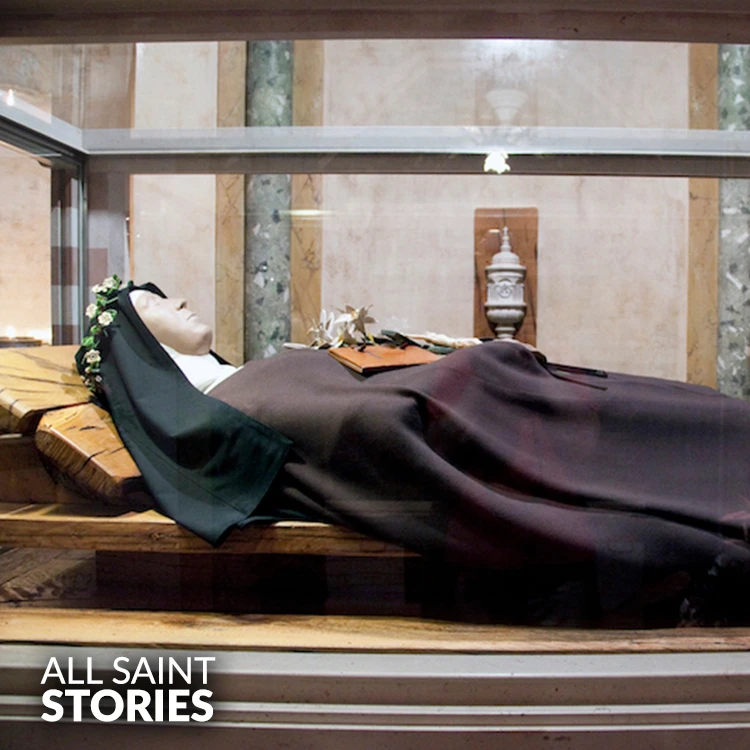"Saint Clare, you who lived a life of faith and simplicity, intercede for us in our times of need. Help us to live with love, humility, and devotion to God, just as you did. May your example of courage and trust inspire us to follow Christ with unwavering commitment. Pray for us, Saint Clare, that we may always seek God's will in our lives. Amen."
ST. CLARE (NUN)
ST. CLARE (NUN)

St. Clare of Assisi was a 13th-century Italian nun and the foundress of the Poor Clares, a monastic order dedicated to poverty and prayer. Inspired by St. Francis of Assisi, she renounced her noble life to follow Christ, embracing a life of simplicity, humility, and deep devotion.
St. Clare was born into a wealthy and noble family in Assisi, Italy, in 1194. From an early age, she displayed deep piety and a desire for a spiritual life, often dedicating herself to prayer and acts of charity. She was particularly moved by the teachings of St. Francis of Assisi, who preached a life of total dependence on God and radical poverty.
At the age of 18, Clare secretly left her home and, under St. Francis’s guidance, renounced her wealth and noble status. She cut her hair as a sign of her new commitment and took refuge in the Benedictine convent of San Paolo. Her family, outraged by her decision, attempted to bring her back, but Clare remained resolute in her calling. She later moved to the small church of San Damiano, where she established the Poor Clares, a female religious order that followed the Franciscan rule of absolute poverty.
Unlike other monastic communities of the time, the Poor Clares depended entirely on alms and had no property or financial security. Clare insisted on living a life of extreme simplicity, humility, and contemplation. She dedicated herself to prayer, fasting, and caring for the sick, inspiring many young women to join her in this way of life. Despite facing opposition from some Church authorities, Clare firmly upheld the rule of poverty, even convincing Pope Innocent IV to recognize it officially.
St. Clare’s devotion to the Eucharist was profound. A well-known story recounts how, during an attack on Assisi by invading forces, she held up the Blessed Sacrament, and the attackers miraculously fled. Her faith in Christ’s presence in the Eucharist became a powerful symbol of spiritual strength.
Throughout her life, Clare maintained correspondence with popes and religious leaders, advocating for her community and ensuring the preservation of the Franciscan ideal. Even as illness weakened her in her final years, she remained steadfast in her faith and devotion. She passed away on August 11, 1253. Two years later, in 1255, she was canonized by Pope Alexander IV, recognizing her holiness and contributions to the Church.
Her legacy continues through the Poor Clare nuns, who follow her rule of simplicity and devotion. The Basilica of St. Clare in Assisi, where her incorrupt body is venerated, remains a place of pilgrimage for those seeking inspiration from her life of unwavering faith and love for Christ.
Video Not Found
The information you see here may be either accurate or might contain some discrepancies, as it is gathered from various sources. If you believe that any part of the details about this saint is incorrect or incomplete, we kindly invite you to share your suggestions or corrections with us. Your insights are invaluable in helping us ensure that we provide the most accurate and reliable information.
We encourage you to use the form on the left to submit any corrections or additional information you may have. Whether it's a small detail or a larger correction, we will carefully review your submission and update the information accordingly. Your contributions will not only help us maintain the integrity of the content but also benefit others who seek to learn more about this saint. We greatly appreciate your assistance in making our information more accurate and complete.
Please rest assured that your personal details will remain confidential, and your suggestions will be handled with the utmost care. Together, we can ensure that the information about this saint is as accurate and informative as possible. Thank you for your time and contribution!
If you have any suggestion about ST. CLARE (NUN)
Your suggestion will help improve the information about this saint. Your details will not be disclosed anywhere.
© 2025 Copyright @ www.allsaintstories.com






 English
English
 Italian
Italian
 French
French
 Spanish
Spanish
 Malayalam
Malayalam
 Russian
Russian
 Korean
Korean
 Sinhala
Sinhala
 Japanese
Japanese
 Arabic
Arabic
 Portuguese
Portuguese
 Bantu
Bantu
 Greek
Greek
 German
German
 Dutch
Dutch